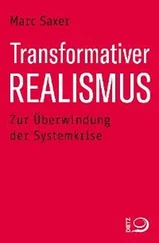Mark Fisher - Capitalist Realism - Is There No Alternative?
Здесь есть возможность читать онлайн «Mark Fisher - Capitalist Realism - Is There No Alternative?» весь текст электронной книги совершенно бесплатно (целиком полную версию без сокращений). В некоторых случаях можно слушать аудио, скачать через торрент в формате fb2 и присутствует краткое содержание. Жанр: Старинная литература, на английском языке. Описание произведения, (предисловие) а так же отзывы посетителей доступны на портале библиотеки ЛибКат.
- Название:Capitalist Realism: Is There No Alternative?
- Автор:
- Жанр:
- Год:неизвестен
- ISBN:нет данных
- Рейтинг книги:4 / 5. Голосов: 1
-
Избранное:Добавить в избранное
- Отзывы:
-
Ваша оценка:
- 80
- 1
- 2
- 3
- 4
- 5
Capitalist Realism: Is There No Alternative?: краткое содержание, описание и аннотация
Предлагаем к чтению аннотацию, описание, краткое содержание или предисловие (зависит от того, что написал сам автор книги «Capitalist Realism: Is There No Alternative?»). Если вы не нашли необходимую информацию о книге — напишите в комментариях, мы постараемся отыскать её.
Capitalist Realism: Is There No Alternative? — читать онлайн бесплатно полную книгу (весь текст) целиком
Ниже представлен текст книги, разбитый по страницам. Система сохранения места последней прочитанной страницы, позволяет с удобством читать онлайн бесплатно книгу «Capitalist Realism: Is There No Alternative?», без необходимости каждый раз заново искать на чём Вы остановились. Поставьте закладку, и сможете в любой момент перейти на страницу, на которой закончили чтение.
Интервал:
Закладка:
'You know what, Stan, if you want me to wear 37 pieces of flair: Joanna complains, 'why don't you just make the minimum 37 pieces of flair?'
'Well: the manager replies, 'I thought I remembered you saying that you wanted to express yourself: Enough is no longer enough. This syndrome will be familiar to many workers who may find that a 'satisfactory' grading in a performance evaluation is no longer satisfactory. In many educational institutions, for instance, if after a classroom observation a teacher is graded as I satisfactory', they will be required to undertake training prior to a reassessment.
Initially, it might appear to be a mystery that bureaucratic measures should have intensified under neoliberal governments that have presented themselves as anti-bureaucratic and antiStalinist. Yet new kinds of bureaucracy -'aims and objectives', 'outcomes', 'mission statements' -have proliferated, even as neoliberal rhetoric about the end of top-down, centralized control has gained pre-eminence. It might seem that bureaucracy is a kind of return of the repressed, ironically re-emerging at the heart of a system which has professed to destroy it. But the resurgence of bureaucracy in neoliberalism is more than an atavism or an anomaly.
As I have already indicated, there is no contradiction between 'being smart' and the increase of administration and regulation: they are two sides of labor in Control societies. Richard Sennett has argued that the flattening of pyramidal hierarchies has actually led to more surveillance of workers. 'One of the claims made for the new organization of work is that it decentralizes power, that is, gives people in the lower ranks of organization more control over their own activities', Sennett writes. 'Certainly this claim is false in terms of the techniques employed for taking apart the old bureaucratic behemoths. The new information systems provide a comprehensive picture of the organization to top managers in ways which give individuals anywhere in the network little room to hide'. But it isn't only that information technology has granted managers more access to data; it is that the data itself has proliferated. Much of this 'information' is provided by workers themselves. Massimo De Angelis and David Harvie describe some of the bureaucratic measures with which a lecturer must comply when putting together a module for an undergraduate degree in British universities. 'For each module', De Angelis and Harvie write,
the 'module leader' (ML, i.e., lecturer) must complete various paperwork, in particular a 'module specification' (at the module's start) which lists the module's 'aims and objectives', ILOs, 'modes and methods of assessment', amongst other information; and a 'module review' document (at the end of the module), in which the ML reports their own assessment of the module's strengths and weaknesses and their suggested changes for the following year; a summary of student feedback; and average marks and their dispersion.
This is only the beginning, however. For the degree program as a whole, academics must prepare a 'program specification', as well as producing 'annual program reports', which record student performance according to 'progression rates', 'withdrawal rates', location and spread of marks. All students' marks have to be graded against a 'matrix'. This auto-surveillance is complemented by assessments carried out by external authorities. The marking of student assignments is monitored by 'external examiners' who are supposed to maintain consistency of standards across the university sector. Lecturers have to be observed by their peers, while departments are subject to periodic three or four day inspections by the Quality Assurance Agency for Higher Education (QAA). If they are 'research active', lecturers must submit their 'best four publications' every four or five years to be graded by panel as part of the Research Assessment Exercise (replaced in 2008 by the equally controversial Research Excellence Framework). De Angelis and Harvie are clear that these are only very sketchy accounts of only some of the bureaucratic tasks that academics have to perform, all of which have funding implications for institutions. This battery of bureaucratic procedures is by no means confined to universities, nor to education: other public services, such as the National Health Service and the police force, find themselves enmeshed in similar bureaucratic metastases.
This is in part a consequence of the inherent resistance of certain processes and services to marketization. (The supposed marketization of education, for instance, rests on a confused and underdeveloped analogy: are students the consumers of the service or its product?) The idealized market was supposed to deliver 'friction free' exchanges, in which the desires of consumers would be met directly, without the need for intervention or mediation by regulatory agencies. Yet the drive to assess the performance of workers and to measure forms of labor which, by their nature, are resistant to quantification, has inevitably required additional layers of management and bureaucracy. What we have is not a direct comparison of workers' performance or output, but a comparison between the audited representation of that performance and output. Inevitably, a shortcircuiting occurs, and work becomes geared towards the generation and massaging of representations rather than to the official goals of the work itself. Indeed, an anthropological study of local government in Britain argues that 'More effort goes into ensuring that a local authority's services are represented correctly than goes into actually improving those services'. This reversal of priorities is one of the hallmarks of a system which can be characterized without hyperbole as 'market Stalinism'. What late capitalism repeats from Stalinism is just this valuing of symbols of achievement over actual achievement. As Marshall Berman explained, describing Stalin's White Sea Canal project of 1931-33:
Stalin seems to have been so intent on creating a highly visible symbol of development that he pushed and squeezed the project in ways that only retarded the development of the project. Thus the workers and the engineers were never allowed the time, money or equipment necessary to build a canal that would be deep enough and safe enough to carry twentieth-century cargoes; consequently, the canal has never played any significant role in Soviet commerce or industry. All the canal could support, apparently, were tourist steamers, which in the 1930s were abundantly stocked with Soviet and foreign writers who obligingly proclaimed the glories of the work. The canal was a triumph of publicity; but if half the care that went into the public relations campaign had been devoted to the work itself, there would have been far fewer victims and far more real developments -and the project would have been a genuine tragedy, rather than a brutal farce in which real people were killed by pseudoevents.
In a strange compulsion to repeat, the ostensibly anti-Stalinist neoliberal New Labour government has shown the same tendency to implement initiatives in which real world effects matter only insofar as they register at the level of (PR) appearance. The notorious 'targets' which the New Labour government was so enthusiastic in imposing are a case in point. In a process that repeats itself with iron predictability everywhere that they are installed, targets quickly cease to be a way of measuring performance and become ends in themselves. Anxiety about falling standards in school examinations is now a regular feature of the summertime in Britain. Yet if students are less skilled and knowledgeable than their predecessors, this is due not to a decline in the quality of examinations per se, but to the fact that all of the teaching is geared towards passing the exams. Narrowly focused 'exam drill' replaces a wider engagement with subjects. Similarly, hospitals perform many routine procedures instead of a few serious, urgent operations, because this allows them to hit the targets they are assessed on (operating rates, success rates and reduction in waiting time) more effectively.
Читать дальшеИнтервал:
Закладка:
Похожие книги на «Capitalist Realism: Is There No Alternative?»
Представляем Вашему вниманию похожие книги на «Capitalist Realism: Is There No Alternative?» списком для выбора. Мы отобрали схожую по названию и смыслу литературу в надежде предоставить читателям больше вариантов отыскать новые, интересные, ещё непрочитанные произведения.
Обсуждение, отзывы о книге «Capitalist Realism: Is There No Alternative?» и просто собственные мнения читателей. Оставьте ваши комментарии, напишите, что Вы думаете о произведении, его смысле или главных героях. Укажите что конкретно понравилось, а что нет, и почему Вы так считаете.












